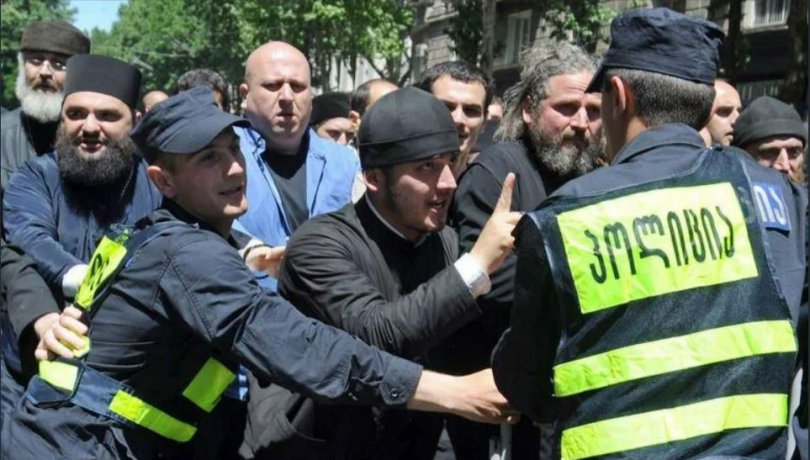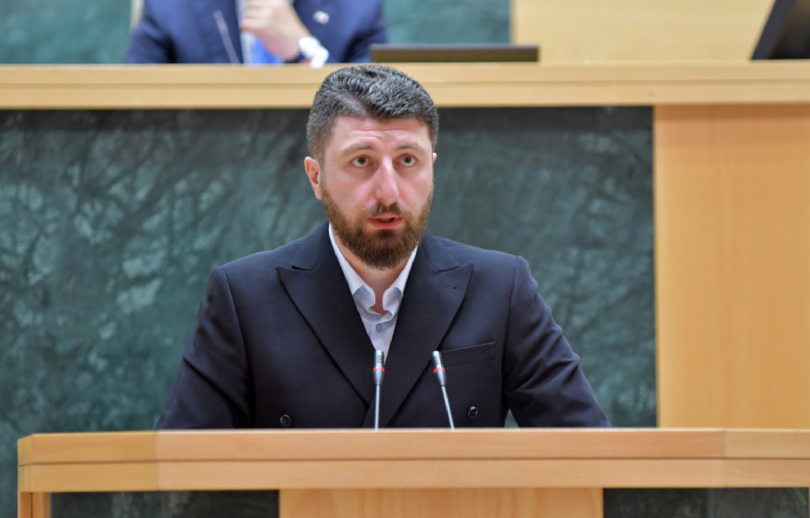
In a high-profile ruling, Strasbourg-based European Court of Human Rights has said the Georgian Government was complicit in a mob attack and violence against anti homophobia activists marking the International Day Against Homophobia (IDAHO) on May 17, 2013.
The judgment is set to reinforce concerns that the Georgian Dream government has been granting Russia-linked far right groups impunity for violence.
Not only did the authorities failed to prevent “unprecedented violence,” the court said the mob attack occurred with their aid.
The ECHR also deemed the subsequent investigation into the affair as “inadequate.”
Its protraction, the ruling says, “can also be read as unwillingness – to examine the homophobic and/or transphobic motives behind the violence and degrading treatment committed against the relevant twenty-seven individual applicants.”
Current PM Irakli Garibashvili, known for his far-right views and links with Russia-linked far right groups served as Interior Minister in 2013 with Bidzina Ivanishvili being the Prime Minister.
Both civil society groups and Georgia’s pro-western opposition have long criticized the Georgian Dream Government for failing to meaningfully punish any of the perpetrators.
May 17, 2013 is also widely viewed as a landmark date after which Russia-linked violent groups started to proliferate and flourish, as the verdict now proves, now without the Georgian Dream Government’s sympathy.
On July 5 of this year, the same groups – now stronger and more numerous than in 2013 –physically assaulted 53 journalists one of whom died days later.
The ruling found violations of Article 3 (prohibition of inhuman or degrading treatment) and Article 11 (freedom of association), in conjunction with Article 14 (prohibition of discrimination) of the European Convention on Human Rights, ordering Georgia to pay 193,000 EUR to 27 applicants.
The judgment specifically says the authorities had “full knowledge” of the risk of serious violence, but nevertheless intentionally decided to deploy merely tens of unequipped Police “who were supposed to contain the tens of thousands of aggressive people by forming thin human cordons.”
This in itself, combined with video evidence and evidence provided by independent journalists, in view of the ECHR, amounts to “official connivance” of the authorities in the acts of violence that took place on that day. Specifically, the court “established beyond reasonable doubt that the police in some places opened up the cordon for the counter‑demonstrators and in others remained passive when the counter‑demonstrators started to break the cordon.”
“Furthermore, the Court finds it particularly striking how certain senior officials of the Ministry of the Interior remained passive in the face of the threats to public order and even constitutional order unabashedly proffered by the organizers of the counter-demonstration. Thus, on the basis of the available video evidence, as well as the individual accounts of each of the twenty-seven applicants, the Court finds it established beyond reasonable doubt that the police in some places opened up the cordon for the counter‑demonstrators and in others remained passive when the counter‑demonstrators started to break the cordon,” the ruling said.





